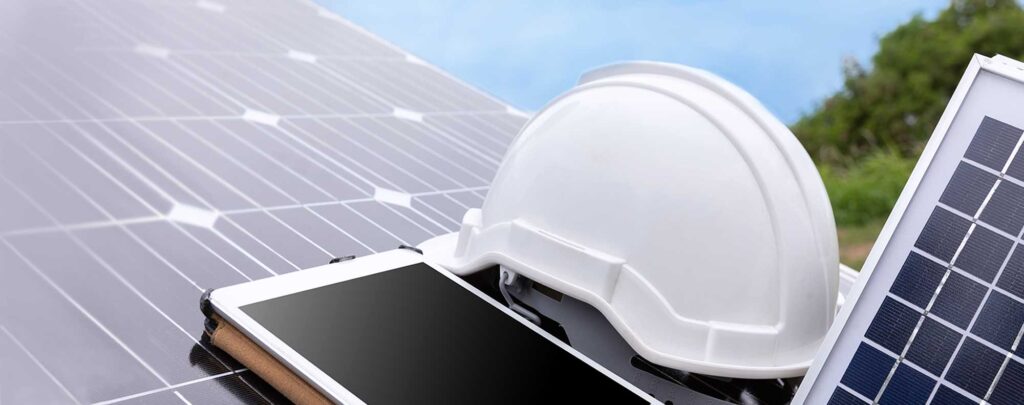“How hot are solar panels become hot?” Those that, of curriculum, need! On the hottest days of the year, these major energy producers are out and about without sunscreen or sunglasses. How do solar panels fare when subjected to the toughest environments? Some achieve significantly greater results than others. Let’s determine whether your solar panels can withstand the heat by answering several of your outstanding questions.

What are the effect of temperature on solar panel efficiency?
Solar panels are generally tested at about 77°F and are rated to perform at peak efficiency between 59°F and 95°F. However, solar panels may get as hot as 149°F during the summer. When the surface temperature of your solar panels gets this high, solar panel efficiency can decline somewhat.
Always keep in mind, however, that solar panels are made of extremely durable materials that are built to withstand radical conditions of the environment ranging from frigid cold weather to intense summer heat. Furthermore, the precise temperature of your solar panels will be determined by factors such as the air temperature, geographic region, amount of direct sunlight, and roofing material. An knowledgeable solar contractor knows how to choose and install solar panels in order to decrease the impact of heat on solar panel efficiency.
Do Solar Panels Get Hot?
Solar panels certainly get warm. A solar panel, also known as a solar photovoltaic (PV) system, generates power through a procedure termed power through a procedure termed the “photovoltaic effect.” When sunlight strikes a solar panel, it transports a large number of microscopic photons to the PV cell’s surface. A solar panel generates electrons, which are then sent through conductive material to generate electricity for your home.
Presently, how hot your panels get will be determined by a number of factors, including air temperature, your home’s proximity to the equator, the amount of direct sunlight your panels receive, and the material of your roof.
Performance enhanced during hot weather
The ability of a solar panel to generate energy is directly impacted by temperature, so it’s critical that technological innovations continue to push solar panels forward. The effect of temperature on the energy output of solar panels is measured by the temperature coefficient.
Evaluate the temperature coefficient on your solar panels’ manufacturer’s data sheet if you’re serious about understanding how so much energy your solar panels might generate depending on the weather conditions. The temperature coefficient indicates, in proportion per degree Celsius, how much power a solar panel will lose for every degree above 25°C (77°F) in temperature.
The moment you switch to solar energy, you start saving money. Because you can already see the results of switching to solar energy, you won’t have to wait long to start benefiting from it.
You should check out Solar Reviews for more information about brands and/or consult a solar company to determine how many solar panels you need because the brand of your solar panels will affect how effective they are in different weather conditions. view related articles Cost of solar panel installation in Nigeria
